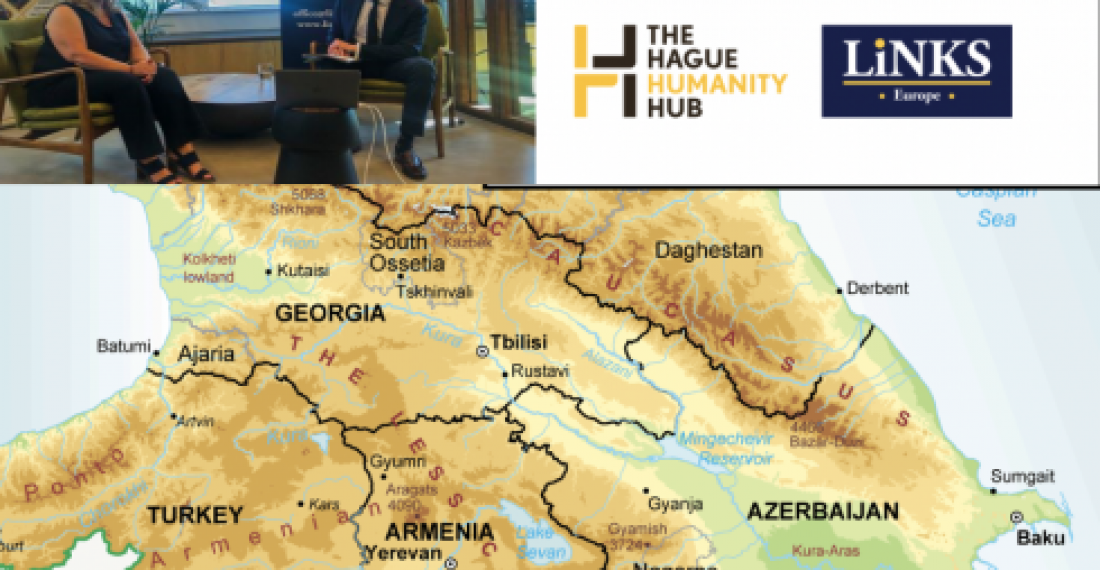On Thursday, the 25th of June, LINKS Europe and The Hague Humanity Hub, in collaboration with commonspace.eu, virtually hosted the seventh event in The Hague Conversations on Conflict series, titled 'Pandemic and Politics - the South Caucasus and Corona'. The event, taking place exactly one year after the launch of the series, shone a spotlight on the South Caucasus, looking at how the countries of the region have handled the ongoing coronavirus pandemic; challenges and developments in the countries' domestic political environments; and the often tense and always finely balanced regional relations.
The panel consisted of speakers from each of the three countries of the region: from Armenia, Benyamin Poghosyan, Chairman of the Center for Political and Economic Strategic Studies, who spoke from Yerevan;from Azerbaijan, Ahmad Alili, the Chairman of the Caucasus Policy Analysis Center, who spoke from Baku; and from Georgia, His Excellency Mr George Sharvashidze, Ambassador of Georgia to the Kingdom of the Netherlands, who spoke from the Georgian Embassy in The Hague. The virtual event was moderated by William Murray, Project Officer for LINKS Europe and Co-convenor of The Hague Conversations on Conflict series. Speakers and attendees were welcomed by Jill Wilkinson, Managing Director of The Hague Humanity Hub.
A summary of proceedings is available here
You can watch the webinair in full on the LINKS Europe youtube channel here







